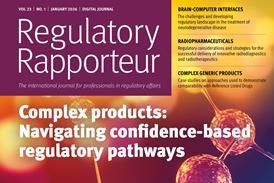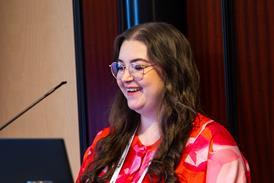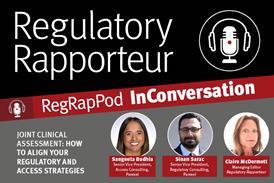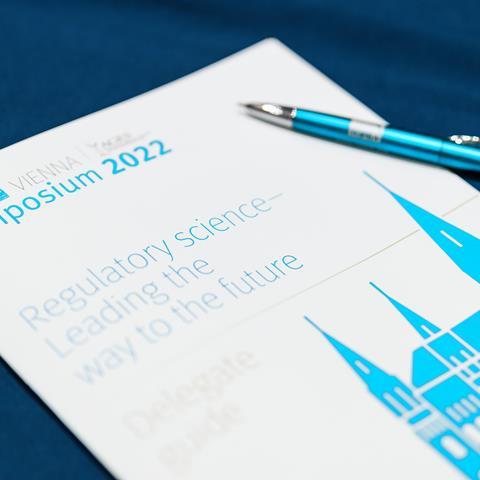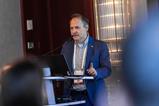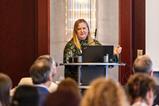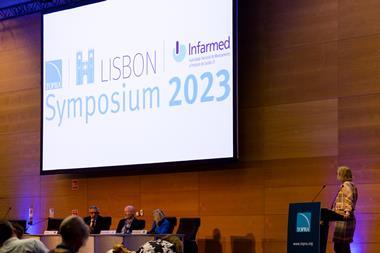It is the most wonderful time of the year – yes, that is Symposium issue time – and the Regulatory Rapporteur editorial team never want to disappoint! The TOPRA Symposium is one of the major annual events for those working in regulatory affairs, and the 2022 Symposium – hosted in association with AGES – was the first since 2019 to be held predominantly face-to-face with only limited access online (the 2020 and 2021 events of course took place wholly virtually due to the COVID-19 pandemic).
Delegates attending in person were able to enjoy the sights of beautiful Vienna – the 2022 Symposium was buzzing with dialogue, the location was great, and there were plenty of opportunities for networking as well as engaging with the programme – even if it wasn’t quite as large as previous face-to-face events, as we build back from COVID-19.
From a veterinary medicines point of view, wishes for a separate space in the conference venue finally came true in 2022. This was the first opportunity for industry and regulators to have faceto-face discussions since the implementation of Regulation 2019/6 this past January, and there were lots of active discussions on what was going well – and not so well. As expected, the presentations at the Veterinary Symposium were largely focused on the impact of the new Regulation, as well as looking ahead to certain secondary legislation and guidelines, with speculation on how these may bring change to the animal health industry in Europe.
Though underpinned by a focus on the new Regulation, the session themes were very varied – ranging from novel therapies and limited market products, to changes to post-marketing procedures and lifecycle management, to new provisions for data protection where MAHs make certain changes to their product licences, and an in-depth look at the relevance of the concept and definition of benefit-risk. VM3 was a delve into the regulation around antimicrobials – always highly relevant in animal health. Change was also a recurring theme across the Medical Devices Symposium, owing to the implementation of the In Vitro Diagnostic Medical Devices Regulation (EU 2017/746) and its impact on clinical trials in particular.
Change can be unsettling and new, innovative processes and procedures can introduce uncertainties. But then we will all start to gather experience and feel more comfortable with the new status quo – and one popular session even focused on continuing to operate on a strategic level in the face of uncertainty, a skill we can all benefit from developing.
As was apparent from the MD sessions, and also the Medicines Symposium, trust and communication is critical as we progress even further towards a global operating environment. There is also now a strong focus on the generation of real-world data and use of real-world evidence – however, this is also not without its challenges, as highlighted in a session with joint contributions from speakers in both the EU and US. Also, as the world starts to fully emerge from the COVID-19 pandemic, it is very apparent to see that both regulators and industry alike are keen to keep pursuing the working practices that were implemented during the last two years – wherever possible, such as hybrid inspections and virtual meetings.
Finally, turning to this year’s annual lecture, given by Greg Perry, of the International Federation of Pharmaceutical Manufacturers and Associations, we were invited to take the opportunity to focus on the potential of reliance in the drug approval process, further building on lessons learned during the pandemic. This would enable more rapid access of patients in those regions without established regulatory frameworks and also those in low- and middle-income countries where access to affordable essential cancer medicines need to be vastly improved, as just one example.
In a world where commercial expectations are very much geared towards EU and US approvals for new medicines in the first instance, this was a grounding message and initiatives such as the African Medicines Agency are very much welcomed so that the industry and regulators across the world can play their role in addressing this imbalance.
The regulatory conference baton is now passed to INFARMED and Lisbon, Portugal for 2023 – where we look forward to seeing many of our colleagues for more interaction and communication – but not before we make the most of our chance, in the last issue of the year, to wish everyone a very happy and healthy 2023!



